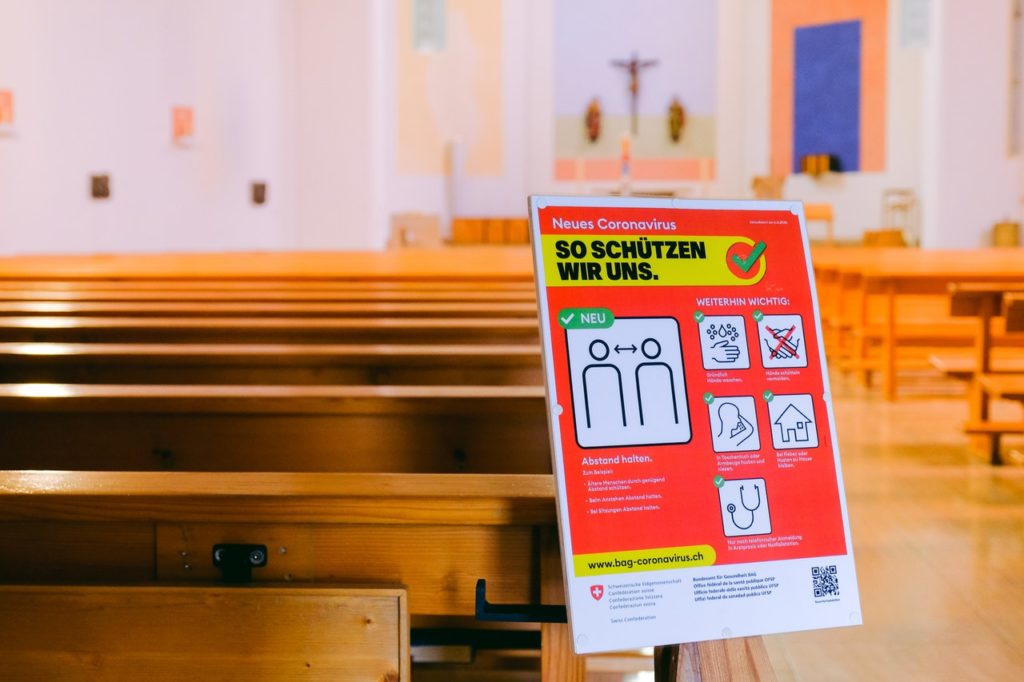
By Vinod John @johnvinod | February 22, 2021
Please begin today’s devotion by reading the book of Joel again. I am sure you must be asking why there was a plague of locusts and what purpose did it serve for the people of God in Joel’s time? These are relevant questions to contemplate because of our own situation today, particularly when the worship, liturgy, gatherings, and in-person fellowship of the believers is adversely affected by the Covid-19 pandemic. Most churches, pastors, and worshippers are struggling. Some are completely denying that we are in the midst of a deadly pandemic even though they cannot deny the apparent disruption of life, death, and devastation it has caused. Some Christians are furious over the restrictions, have grown weary, and some have become so skeptical of their governments, authorities, and even medical professionals/scientists that they are easily falling prey to believing and spreading harmful conspiracy theories.
In Joel’s theology, one of the primary causes of the locust plague was the corruption that has set in the Old Testament Church—their liturgy, worship, and the ministry of Yahweh God in the Temple. The nerve center of Judaism was the Temple and what happened in and around the Temple influenced the life of the Jewish people. Joel preached that it was both the immoral life of believers whom he calls “drunkards” (Joel 1:5) and the corrupt attitude of the priests that was responsible for the plague. The priests become cavalier in their approach to their ministry and the dereliction of their God appointed duties has led to the dilution of the sanctity of life and liturgy at the Temple. Moreover, the drunkenness of the people, participation of farmers in the fertility cults, idol worship, and the lack of purity in sacrifices had not only perverted the worship, but it also led to syncretism and undermining the uniqueness of Yahweh as their only covenant God. Joel says that to grab their attention, God let the plague get so severe that it disrupted the continuous sacrifices and offerings at the Temple to the extent that the very existence of the temple liturgy and priesthood was at stake.
Nevertheless, the message of Joel is not that the Temple worship must be completely abandoned because it was corrupted and threatened by the plague. On the contrary, Joel preached that it must be revamped and transformed by restoring “the holiness without which no one will see the Lord” (Hebrews 12: 14 ESV). And for Joel, this begins with the priests and worshippers alike repenting, becoming humble before the Lord, asking forgiveness from the Lord, forsaking their sinful ways, and renewing their covenant with their only God, Yahweh. For Joel, even though the prophets like himself have condemned the corporate worship and ungodly liturgy of the Temple, their purpose was to ultimately reform it rather than reject it entirely. How can we say this with confidence? Well, if you carefully read Joel, and some other prophets like Hosea and Amos, you would clearly note that their message is of hope rather than doom and destruction. They proclaimed the “Day of the Lord,” and the coming of the Holy Spirit on all flesh and thus God would return, restore, and abide with His people on his holy hill!
Today, the pandemic has afforded the church, the holy bride of Christ, its believers, and ministers alike to sit back, lighten up, and rethink what the church is! Instead of taking part in the protests against governments’ restrictions and policies to keep people healthy and prevent further spread of infections, let us go back to the drawing board. Instead of choosing to suffer from a persecution complex, let us apply this time to read and research:
How and where the early church gathered and worshipped the Lord Jesus Christ in the face of a hostile and brutal Roman Empire?
How large were their gatherings?
How many times and where did they come together?
How did they celebrate their liturgies?
Was there a building or a gathering place that was called and understood as the “church”?
How did they live their lives daily in the public square?
How did they do missions in the marketplace?
As we do this research, I believe the Holy Spirit will give us insights. These insights in turn must lead us all to repent and ask forgiveness for the institutional and religious paraphernalia we have built in and around the holy Bride of Christ, the church. I believe our God has not abandoned the church today as he will never abandon His Bride. He wants to purify His Bride for the cause of His kingdom in this world. Therefore, the answer to improper worship and wrong ecclesiology is not no gathering and no church, rather it is the right and biblical church that God wishes for us to become His community of transformation on this earth until His second coming. Therefore, let us revive, remodel, restore, and refresh ourselves to discover new and innovative ways of being the holy Bride of Christ. Maranatha!
For paperback, please contact vinod@vinodjohn.com
Leave a Comment